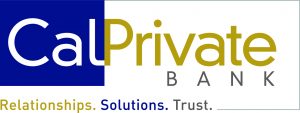SAGE Business Barometer – Kevin Landry
The business leaders who belong to Sage Executive Group deal with challenges across a broad spectrum of the economy and have first-hand understanding of the opportunities and obstacles ahead. This blog from members of Sage’s peer-to-peer advisory groups offers insights and advice.
Kevin Landry is the CEO/Owner of New Horizons Computer Learning Centers of Southern California, which has offices in San Diego, Anaheim, Burbank, Culver City and San Bernardino and provides IT learning solutions to companies and individuals, helping them make the most of their software investments.
While the economic climate is brightening across the country and Landry is upbeat about revenue prospects for his company, he cautions that California’s business regulations and requirements are distracting, and even stifling. Here’s what he had to say in an interview in February:
“In California, we have our own set of challenges with the national groundswell going one way and California pulling us in another direction. We saw voters nationwide go to a certain philosophy and direction while the state of California retrenched. We find it restrictive and difficult to do business. Other states have fewer regulations, less intrusiveness, and a lower cost of doing business. Sometimes I’m envious of them.
“Obamacare did affect how we bonus our people. We used to cover 100 percent of family insurance for our managers, and now that is considered discriminatory and we can’t do that. I don’t believe government should be telling us how to reward our people.
“Every city has a different requirement for how sick leave is accrued. We are forced to be aware of each and every different municipality. It takes my focus off our primary mission , thinking of where we’re going to be in 6 to 12 months from now. I should be working on the business, not at the business.”
“Do we want to continue to grow in California, or think about moving jobs outside California, or to models where we’re not creating jobs? For example, we no longer need to have an instructor in class in California. The instructors can now deliver the class from a remote location in another state via online delivery.
“We are forced to do things and pay licensing fees such as UC Irvine or UC San Diego. Governing agencies are difficult to work with and can be onerous, bureaucratic. It’s the administrivia that state agencies and audit agencies put on us.
“We’ve done well. Last year we grew just under 30 percent. We have an optimistic forecast for 2015; we are bullish on short-term opportunities.”
SAGE ADVICE from executive peer advisory group
“Settle on a philosophy and a set of principles and diligently implement that strategy no matter how painful it is. Some people are not going to make the transition and some people are. Friendships are going to be challenged. The CEO is going to have to make decisions in the best interest of the company, not the best interest of the friendship.”
“When we put the company ahead of everything else, it’s amazing how well the company has done.”
Weekly Wisdom: Can Fear Be A Great Motivator?
Have you ever had pre-game jitters, been nervous before a big sales presentation, or been concerned about delivering bad news to an employee, boss or board of directors?
My answer to the question of Fear as a Motivator is both No and Yes
To support the No reply in respect to business leaders or sports coaches, it is true that short-term results can be gained by utilizing fear as a motivator. Having said that, the results are never pleasant, and long term it is not the right way to motivate people. Short-term results do not turn into long-term achievement. The best examples supporting this conclusion have been exhibited by very successful college coaches who rule with iron fists utilizing fear tactics. Invariably they try to move onto the pro ranks and that is where these tactics do not work with true professionals. It is exhibited in the business world by autocratic leaders who achieve short-term goals but miss long-term objectives because they cannot retain their people.
On the Yes side of the equation are my studies of highly successful leaders, coaches and athletes. A common trait they share is their self imposed and innate fear of failure. Each day they are concerned with disappointing their teams, or fears of not achieving their vision and goals. What this group has in common is that they are high achievers and are considered best in class by those that know them.
One of the defining factors of true winners, leaders, coaches and employees is the ability to face their fears and to not become paralyzed by them. An old coach of mine told me that everyone has their fears, but my ability to act on and overcome them would define my level of success.
If Fear is controlling you, it may be time to confront it and see what the worst outcome is. In my own experience, it was rarely as bad as I made it out to be.
“I have learned over the years that when one’s mind is made up, this diminishes fear; knowing what must be done does away with fear.” Rosa Parks
Weekly Wisdom by Jerry Rollins, CEO and Chairman of Sage Executive Group



